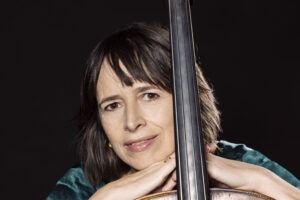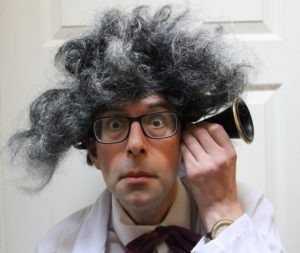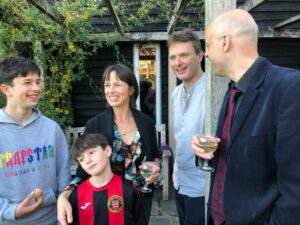A vibrant and eagerly anticipated event on Hampshire’s cultural calendar, Winchester Chamber Music Festival is brought to you by the renowned cellist, Kate Gould as Artistic Director, alongside her international chamber music colleagues. Since its foundation in 2007 the Festival has grown and become more ambitious in its programming whilst staying true to bringing top quality chamber music to as wide an audience as possible.
A 2024 welcome message from Artistic Director, Kate Gould
This year’s programme is surely the most vibrant and diverse since the Festival began in 2008. Whilst the great European composers of the past continue to dominate, I have enjoyed riding the wave of change: exploring musical styles from all over the globe, highlighting neglected female composers and discovering the exceptional creative output of our Composer-in-Residence, Piers Hellawell.
The Festival String Orchestra gives the Gala Concert at the Theatre Royal Winchester a celebratory feel performing the wonderful Serenade by Tchaikovsky and Mozart’s Exsultate Jubilate with the highly versatile American soprano, Katharine Dain. You will also hear atmospheric works by Arvo Pärt and Barber, which you may recognise from numerous film soundtracks, as well as electronic string sounds by Australian composer, Carl Vine.
Do come along to our Saturday morning Family Concert for all ages which was great fun last year and is not to be missed! Our Emerging Quartet-in-Residence will play concerts with the professionals, present Winchester Go LD’s Funky Lunch and receive daily mentoring, while our school visits continue with workshops and interactive concerts in three local primary schools.
The atmospheric Late Night Concert features Hellawell’s mesmeric rhythms and gamelan tones, Wagner’s infamous Prelude to Tristan and the soulful Russian Orthodox chants of Arensky’s cello quartet, contrasting with Berio’s startling Sequenza for soprano. Or if you are after something lighter to set your toes tapping, then Classical Swing on Sunday evening is for you!
Our new Baroque Coffee Concert brings together one of the world’s finest lute players, Liz Kenny, and our Baroque specialists, James Toll and Richard Lester. I am also delighted to welcome back some Festival regulars: the huge, rich tone of Dutch violist, Simone van der Giessen, the esteemed Gould Piano Trio with pianist, Benjamin Frith, and David, Lucy, James and I performing some stunning string quartet repertoire with our Festival String Quartet hats on. I can’t wait!
Very best wishes,




